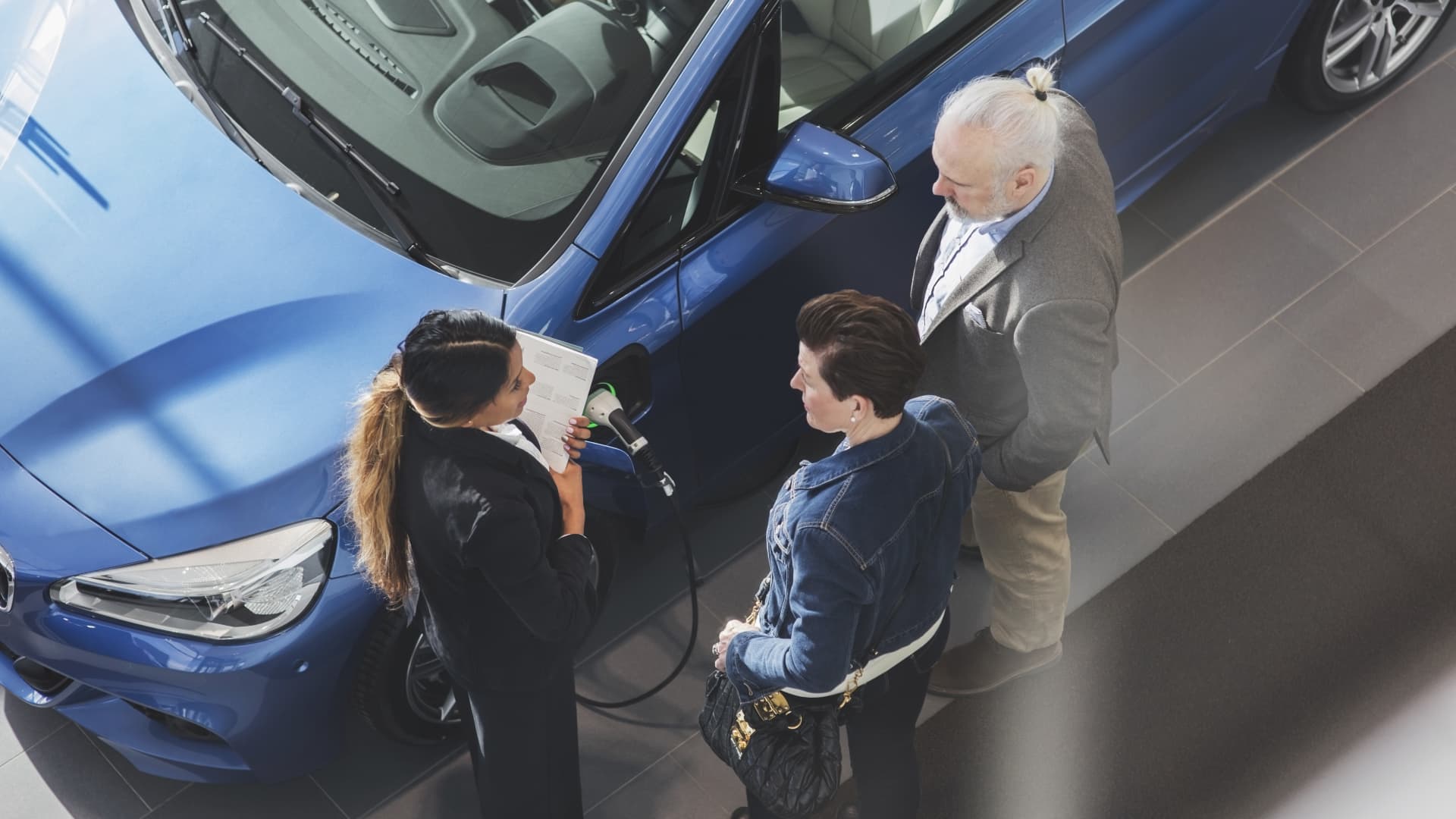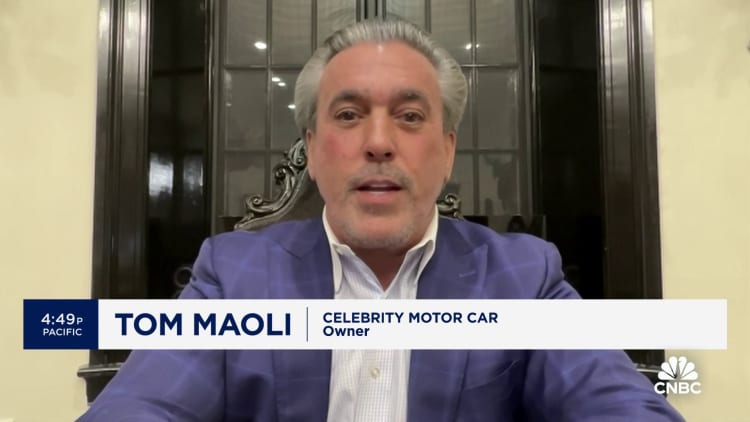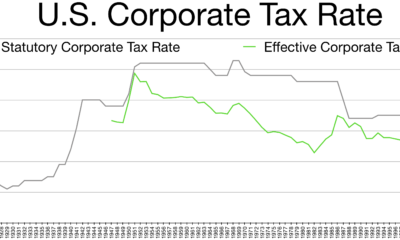Finance
90% of eligible EV buyers will receive a $7,500 tax credit as an upfront payment

Maskot | Maskot | Getty Images
The majority of Americans who purchase eligible new electric vehicles are choosing to receive an associated tax credit from the car dealer upfront rather than waiting until tax season, new data from the Treasury Department shows. a
About 90% of consumers who qualify for a “new clean vehicle“tax credits – worth up to $7,500 – have requested their tax benefits be paid out as an advance, according to a Treasury official speaking on background.
“It means it’s popular,” Ingrid Malmgren, policy director at the nonprofit EV advocacy group Plug In America, said of the data.
Prepayments are a new, optional financial mechanism created by the Inflation Reduction Act, which President Joe Biden signed into law in 2022. They allow dealers to provide an upfront discount to eligible buyers, delivered as a partial EV payment, down payment or cash payment to consumers. The IRS then reimburses the dealer.
Not everyone will necessarily qualify for the full $7,500, depending on factors such as the type of car purchased.
The prepayment provision came into effect on January 1.
Previously, all EV buyers had to wait until tax season the year after their purchase to claim the associated tax benefits, meaning they could wait several months or more.

Because the Clean Vehicle Credit is non-refundable, households with low annual tax burdens may not be able to claim the full value of the tax credit on their returns. But that’s not the case with prepayments: eligible buyers get their full value, regardless of tax liability.
Advance payments are also available for the purchase of used electric vehicles. The previously owned clean vehicle credit is worth up to $4,000.
The advances can help with affordability, Malmgren said. For example, the cash up front means households may not have to get money from elsewhere to cover a down payment, she said. It can also lower the cost of monthly car payments and overall interest costs, she added.
Auto dealers have filed about 100,000 time-of-sale reports for new and used electric vehicles with the IRS since Jan. 1, indicating a consumer is eligible for a tax credit, the Treasury Department official said.
The Treasury Department has issued more than $580 million in advance payments since Jan. 1, the official said.
“Demand is high following the implementation of this new provision as American consumers save more than half a billion dollars over four months,” Haris Talwar, a Treasury Department spokesman, said in a written statement.
Reservations on advance payments
Of course, there are some caveats about the advance payments. Firstly, not all car dealers participate.
To date, more than 13,000 dealers have registered with the trade association IRS Energy Credits Online Portal to facilitate these financial transfers to consumers. That number has increased from more than 11,000 at the beginning of February.
For context, there were 16,839 franchised auto dealers in the U.S. in the first half of 2023, according to the National Automobile Dealers Association. There are also about 60,000 independent car dealers, although they largely sell used cars according toaccording to a Cox Automotive estimate for 2021. Not all of these franchises or independent dealers necessarily sell electric vehicles.
More from Personal Finance:
3 signs it’s time to refinance your mortgage
What Biden’s new student loan forgiveness plan means for your taxes
Why the Fed is in no rush to cut rates in 2024
In addition, not all electric vehicles or consumers are eligible for a tax benefit.
The Inflation Reduction Act sets production requirements for new electric vehicles — intended to encourage more domestic production — that temporarily limit which models qualify for a full or partial tax credit.
There are 36 new EV models currently available for a tax break in 2024According to U.S. Department of Energy data as of March 18.
Manufacturers of these models include Acura, Audi, Cadillac, Chevrolet, Chrysler, Ford, Honda, Jeep, Lincoln, Nissan, Rivian, Tesla and Volkswagen. Some models qualify for half the tax credit – $3,750 – instead of the full $7,500.
Cars and buyers must also meet other requirements, including household income limits and EV sticker price thresholds.
Buyers must sign an affidavit at car dealerships confirming that their annual income does not exceed certain thresholds. If consumers make a mistake, they usually have to pay back the tax benefit to the tax authorities.













